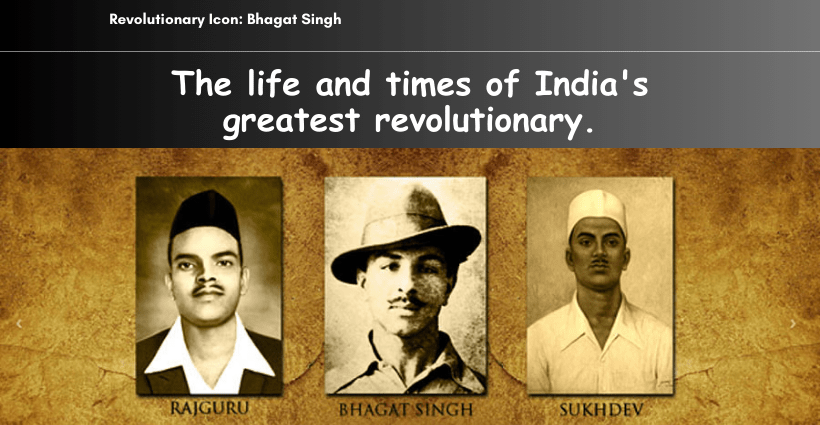Bhagat Singh, a name synonymous with courage, patriotism, and sacrifice, is one of the most iconic figures in the history of India’s independence struggle. His life, marked by unwavering dedication to the cause of freedom, continues to inspire generations of Indians and people worldwide. Born on September 28, 1907, in Banga, Punjab (now in Pakistan), Bhagat Singh’s journey from a young revolutionary to a martyr for the nation is a testament to his indomitable spirit and commitment to justice.
Early Life and Influences:
Bhagat Singh was born into a family that had a history of participating in nationalist activities. His father, Kishan Singh, and uncle, Ajit Singh, were both active in the fight against British colonial rule. Growing up in this environment, Bhagat Singh imbibed patriotic sentiments from a young age. The sacrifices of freedom fighters like Kartar Singh Sarabha and Ram Prasad Bismil deeply influenced Bhagat Singh, inspiring him to join the struggle for independence.
Education and Political Awakening:
Bhagat Singh’s education played a crucial role in shaping his political ideology. He attended the National College in Lahore, where he came into contact with prominent nationalist leaders and thinkers. It was during this time that he was exposed to socialist and Marxist ideologies, which resonated deeply with his beliefs about social justice and equality. Bhagat Singh was also a voracious reader and drew inspiration from revolutionary literature and movements around the world.
Role in the Independence Movement:
At the tender age of 23, Bhagat Singh became a prominent figure in the Indian independence movement. He joined the Hindustan Socialist Republican Association (HSRA), a revolutionary organization dedicated to overthrowing British rule through armed resistance. Bhagat Singh believed that passive resistance alone was insufficient to achieve freedom and advocated for more radical methods to shake the foundations of the colonial regime.
One of the most significant acts of defiance led by Bhagat Singh was the Lahore Conspiracy Case. In 1928, he and his comrades plotted to assassinate James A. Scott, a British police officer responsible for the brutal lathi charge on Lala Lajpat Rai during a protest against the Simon Commission. However, in a case of mistaken identity, another officer, J.P. Saunders, was killed. Bhagat Singh and his associates, Sukhdev Thapar and Shivaram Rajguru, were subsequently arrested and put on trial.
Martyrdom and Legacy:
The trial and subsequent execution of Bhagat Singh, Sukhdev Thapar, and Shivaram Rajguru on March 23, 1931, sent shockwaves throughout the nation. Despite facing brutal interrogation and torture, Bhagat Singh remained steadfast in his principles and never wavered in his commitment to the cause of freedom. His defiant attitude and courage in the face of adversity made him a symbol of resistance against oppression.
Bhagat Singh’s martyrdom galvanized the masses and ignited a renewed sense of determination in the struggle for independence. His famous slogan, “Inquilab Zindabad” (Long Live the Revolution), became a rallying cry for freedom fighters across the country. Even today, Bhagat Singh’s legacy continues to inspire millions of people, reminding them of the power of conviction, sacrifice, and the enduring quest for justice and equality.
In conclusion, Bhagat Singh’s life was a testament to his unwavering dedication to the ideals of freedom and justice. His fearless spirit, intellectual acumen, and revolutionary fervor continue to resonate with people of all ages, serving as a beacon of hope and inspiration in the ongoing pursuit of a better world.
Click Here for the Previous Year’s APSC Question Paper
Moreover, your support has been invaluable to us. We are grateful for your continued support…
Follow us on

